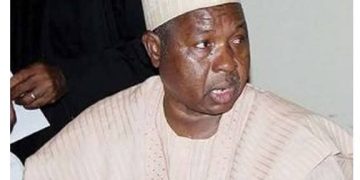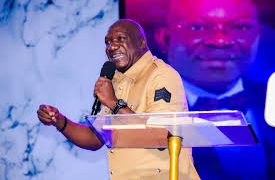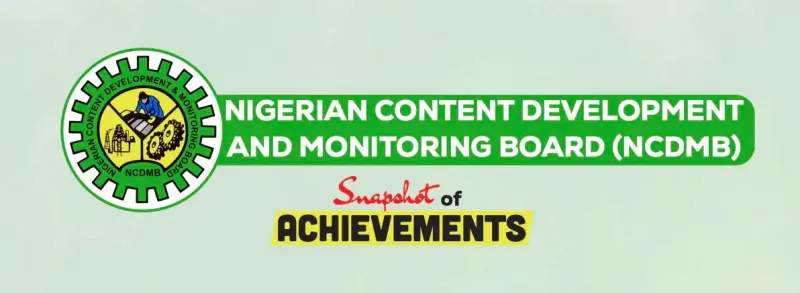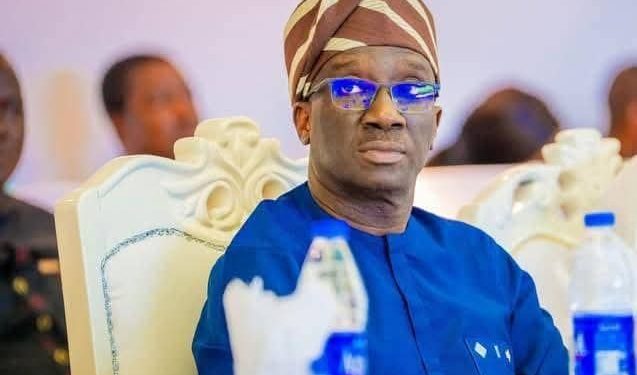Power, in the hands of the unprepared, often reveals its most dangerous paradox: that a man can inherit a throne he cannot interpret. What Edo is witnessing under Monday Okpebholo is not governance; it is the tragedy of accident elevated to authority; a government stumbling in daylight and calling it progress.
Edo State today stands like a ship whose captain mistook the wheel for a steering toy. In less than a year, Monday Okpebholo has managed to drain the last reserves of public confidence, turning governance into a spectacle of confusion, mediocrity, and misdirection.
His administration resembles a man who suddenly came into massive inheritance without the faintest idea what to do with it — the political equivalent of a next of kin startled by unexpected fortune. Every decision betrays unpreparedness, every policy exposes uncertainty.
When the story of this period is told, it will be said that Edo once endured a government that mistook accident for mandate and ceremonial flamboyance for vision.
Perhaps the most scandalous manifestation of Okpebholo’s cluelessness is his unprecedented appointment of twenty-eight commissioners — a bloated and unnecessary cabinet for a state already gasping under economic strain. It is the largest in Edo’s history, yet the most uninspired. There is no discernible logic in the appointments: no portfolio alignment, no meritocratic balance, no fiscal prudence. Like a man distributing party souvenirs, the governor has turned the sacred responsibility of public service into an exercise in patronage.
No vision, no coherence — only names on a list, each representing political debt rather than public value. When government becomes a payroll of favours, the people become its casualties.
Under the PDP, Edo built systems. EdoBEST redefined education, EdoGIS digitised land administration, and civil-service reforms restored discipline to the bureaucracy. Those were the quiet revolutions that earned Edo respect.
Today, those systems lie abandoned. For almost a year, not a single Certificate of Occupancy has been issued. The once-vibrant EdoGIS platform has collapsed under the weight of incompetence. Developers are stranded, investors discouraged, and bureaucrats bewildered. Sources within the system whisper, with tragic disbelief, that the governor’s inability to sign a regular signature has paralysed one of the most crucial arms of governance. Edo people do not have a governor; they have absenteeism wearing a title.
Okpebholo’s government has reduced governance to ceremonial noise. Roads remain impassable, local councils are comatose, and insecurity festers. The so-called fight against cultism has degenerated into a campaign of demolitions and fear, violating rights, destroying livelihoods, and mocking the rule of law. Edo people no longer see a government; they see a performance — one that confuses populism with leadership and confusion with courage. It is as if Edo has been placed on autopilot while its captain recites prayers for direction.
What is happening in Edo is a microcosm of the broader APC disaster in Nigeria — a government that inherited goodwill and squandered it with astonishing speed. Across the federation, the pattern is the same: policy by impulse, economy by speculation, and governance by trial and error. Nigeria bleeds while its rulers grope for applause. Inflation has reduced salaries to relics, insecurity has normalised tragedy, and leadership has been replaced by public relations. The APC promised renewed hope but delivered refined hardship. Edo must not follow that path to perdition.
By contrast, the PDP remains the only political institution in Edo State still guided by philosophy, intellect, and purpose. It built the foundation of digital governance, transparency, and public accountability now being dismantled by the APC. Our legacy is measurable: reforms that attracted international commendation, fiscal discipline that stabilised the state’s finances, and a governance ethos that prioritised people over politics.
We are not perfect, but we are purposeful. The PDP understands that governance is not theatre; it is the science of building trust. Edo needs competence, not cap-wearing; structure, not slogans. The people’s choice in 2027 must be between a government that builds and a government that blunders.
Edo people are discerning. They know when leadership is serious and when it is accidental. They can see that the present administration has no compass, no depth, and no direction. The challenge before us, therefore, is not merely political; it is moral. Shall we continue to reward incompetence because it wears the right party badge, or shall we reclaim the dignity of governance that once made Edo a model of progress and sanity?
Competence remains the highest form of loyalty a leader can show his people. Edo must rise again under a government that understands planning, policy, and people, not patronage, panic, and propaganda.
Edo’s tragedy under Monday Okpebholo is a lesson in what happens when leadership becomes accidental and politics replaces governance. We must rescue the state before indifference becomes our inheritance. The PDP stands ready, not as an opposition seeking revenge, but as a movement seeking restoration. Our mission is to rebuild the systems, restore the dignity, and recover the soul of Edo State.
Edo deserves a government that can think, plan, and act, not one that fumbles, flatters, and fails.
DAN Osa-Ogbegie, Esq.
Publicity Secretary, Peoples Democratic Party (PDP), Edo State








































